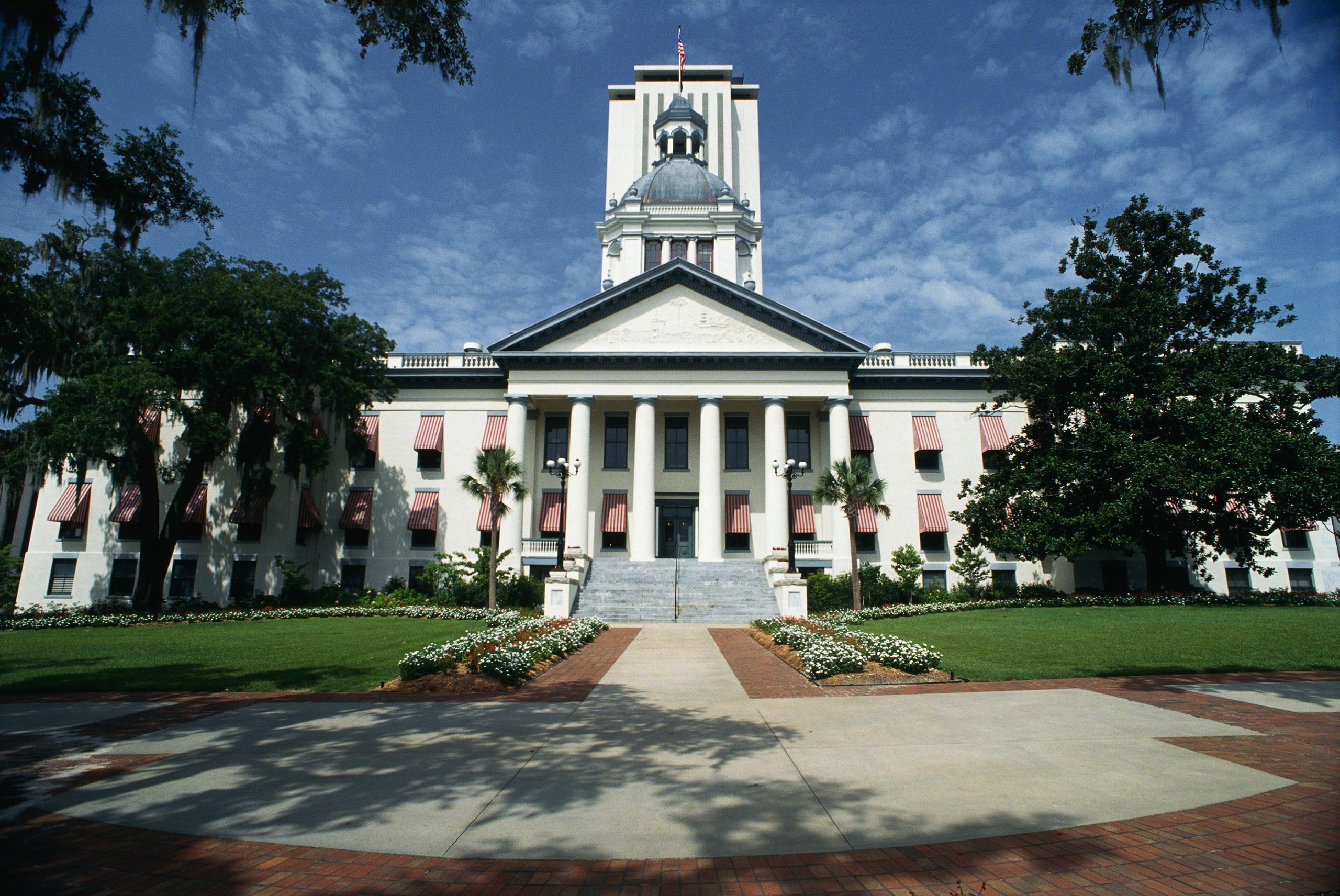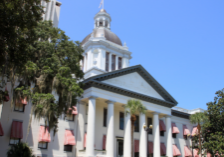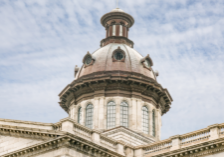The 2021 Florida Legislative Session ended up being as unique as anticipated with big budgetary surprises, COVID-19 oddities, and red-hot button issues debated in the Capitol.
Budget
For the first time in the history of Florida, the Legislature passed a budget to spend more than $100 billion — a remarkable fact just one year after projections predicted economic ruin in the Sunshine State due to the pandemic. The record-breaking $101.5 billion balanced budget was made possible by the more than $6 billion in federal funds included in the American Rescue Act, better-than-expected revenue receipts, relaxed COVID-19 restrictions on businesses, and renewed tourism. The budget includes good news for many: raises and bonuses for state employees (including teachers and first responders), significant spending on state infrastructure, additional funding for economic development and workforce support initiatives, and no cuts to the hospital Medicaid base rate.
Online Sales Tax
SB 50, the Park Randall ‘Randy’ Miller Act, has been signed and requires online retailers like Amazon.com to collect sales tax (6%). The measure simply expands the definition of sales tax to include online retailers who generate more than $100,000 in revenue in Florida per year, so shopping at physical stores is taxed at the same rate as shopping online. Revenue generated by this new tax, estimated at $1 billion per year, will go toward replenishing the state’s Unemployment Compensation Trust Fund (UCTF). After the UCTF is restored to pre-pandemic levels, the new tax will offset lower revenues from previous sales tax rate cuts on commercial leases.
Medicaid/Healthcare
The new state budget maintains current funding levels for hospitals’ Medicaid base rates and other healthcare programs. Lawmakers also added $240 million to Medicaid in order to cover new mothers until one year after giving birth, previously capped at 60 days after birth. For context, Medicaid pays for labor and delivery services for almost half of all babies born in Florida. The state will also spend $131 million on opioid addiction outreach and treatment programs, and $95 million to shrink the 20,000-person waiting list for at-home care through a Medicaid program for the developmentally disabled. Aside from healthcare funding, Governor DeSantis signed SB 2006, which bans vaccine passports in the state and goes into effect on July 1.
COVID-19 Liability
Florida’s COVID-19 liability protection bill offers legal protections for businesses, governments, and health care providers who followed government-issued health standards to prevent the spread of coronavirus. The bill sets lawsuit requirements, such as a plaintiff would have to prove the defendant deliberately ignored guidelines. If the court determines that the defendant made an effort to follow guidelines, they are immune from civil liability. The law, which went into effect on April 5, 2021, applies retroactively to the beginning of the pandemic, but includes a statute of limitations that claims must be filed within one year from the date of injury.
Data Privacy
HB 969 failed in the last hours of the legislative session after fierce debate. The bill would have given consumers the right to know and control how their personal data is collected, used, stored, shared, bought, and sold. Opponents of HB 969, which included some of the state’s largest companies and their lobbyists, argued it would place a massive regulatory burden on businesses.
Resiliency/Conservation
During the session’s final week, the Florida House and Senate agreed to spend $100 million to clean up the former phosphate plant at Piney Point in Manatee County and $300 million on the Florida Forever program to conserve the state’s natural and cultural heritage. Lawmakers also agreed to put $500 million into the Resilient Florida Trust Fund, an infrastructure program that addresses sea-level rise and flooding.
Election Reform
SB 90 will limit the number of absentee ballots a person may return on behalf of others, mandate early voting ballot drop-boxes be available at election supervisors’ offices and early voting sites, and increase voter ID requirements when requesting an absentee ballot.
Anti-Riot + Police Reform
HB 1, signed this spring, will establish additional protections for officers and increase penalties for looting and violence during mass demonstrations. The Legislature also passed a bipartisan police reform bill (HB 7051) that, among other things, will prohibit police from arresting young children (<7 years old), mandate data collection during use of force incidents, enhance transparency of officers’ disciplinary histories, and require officers to interfere if a fellow officer uses excessive force.
Education
This Legislative session ended with significant wins for Florida educators and students, including passing HB 419 to make the voluntary pre-kindergarten program more accountable and proactive for getting children ready for kindergarten. The state allocated hefty funding for education, including $550 million to raise teachers’ salaries to at least $47,500, a $38 per-student increase in K-12 state funding, $464 million for school choice programs, $120 million for school mental health programs, and $216 million for one-time $1,000 bonuses for teachers and principals. The Florida Department of Education will also develop detailed plans for spending $6.8 billion in additional federal funds, designated for Florida as part of the American Rescue Plan.
Roadways/PIP
Two years ago, lawmakers passed a bill to build three new toll roads through rural Florida, however, after a preliminary analysis found a lack of need and possible environmental concerns the Legislature reversed course and repealed the law. If signed into law, SB 54 would fundamentally change car insurance in Florida by eliminating the no-fault personal injury protection (PIP) coverage system, replacing it with mandatory Bodily Injury coverage of $25,000 per person and $50,000 per accident, and $5,000 of medical payment, or Med-Pay, coverage. The Med-Pay requirement, PIP’s inferior replacement is another strike against SB 54. Lawmakers last reformed PIP in 2012, adding much-needed checks on fraudulent claims and bad-faith litigation that had driven up insurance rates. The switch from PIP to Med-Pay eliminates most of those checks and opens the door to more litigation.
Upcoming Special Session
In mid-May, lawmakers will return to Tallahassee to consider a new compact with the Seminole Tribe that modernizes the gaming industry, including authorization of sports betting. Governor DeSantis’ office negotiated the deal, which has been agreed upon by both sides in principle. As a key part of the deal, the state would get roughly a half-billion dollars annually from new revenue to grant the tribe exclusive rights to run Florida’s online sports betting market for 30 years.
Next Session Starts Early
Florida’s legislative session begins in January during even years and in March during odd years, so the next legislative session will start in January 2022. Committee weeks will likely begin this fall.













